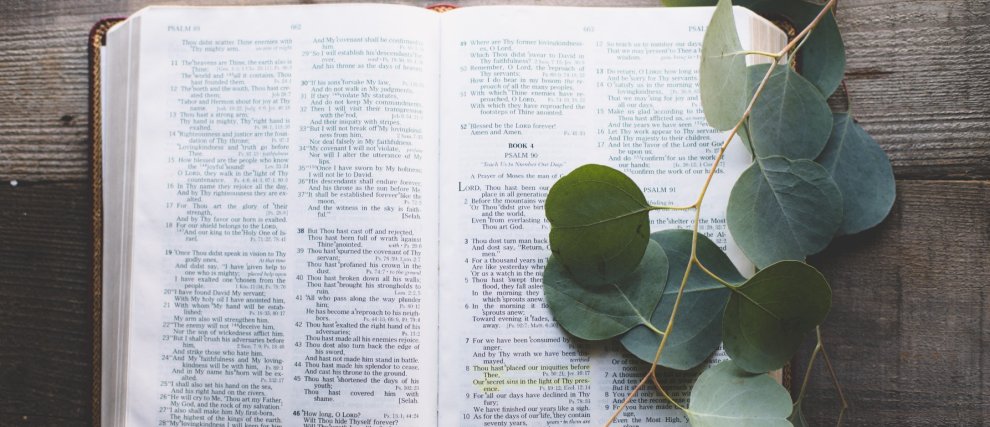What is the Resurrection?
Resurrection is the return to life after death. It finds its origin in Christ, who is the “firstborn from among the dead” (Colossians 1:18). Constituting the heart of our faith, it is addressed in particular in the first part of the Catechism of the Catholic Church on the profession of faith. Discover the main questions and answers around the resurrection from the Catechism of the Catholic Church. At the end of this reading, we invite you to discover other great questions of faith.
The resurrection is at the heart of our faith
The day of Christ's Resurrection is “a new day that has risen,” as number 349 of the Catechism mentions. The Resurrection is one of the foundations of our faith. For example, number 638 says that “The resurrection of Jesus is the culminating truth of our faith in Christ, believed and lived as a central truth by the first Christian community, transmitted as fundamental by tradition, established by the documents of the New Testament, preached as an essential part of the paschal mystery at the same time as the Cross” (No. 638).
In addition, the resurrection is recalled in the Apostles’ Creed, which is heard at Mass on Sunday.
For example, the Apostles' Symbol reminds us that Jesus “rose from the dead” and that we believe in “the resurrection of the flesh”.
In the Nicene-Constantinopolitan Creed, we hear “I await the resurrection of the dead, and the life of the world to come. ”
Number 988 of the catechism adds in particular that the Christian Creed “culminates in the proclamation of the resurrection of the dead on the last day and in life everlasting.” (No. 988).
As for the Bible, it recalls, through Saint Paul: “And if Christ has not been raised, our preaching is useless and so is your faith.” (1 Corinthians 15:14). The resurrection can therefore only be understood and enlightened from Jesus Christ.
“The mystery of Christ's resurrection is a real event, with manifestations that were historically verified, as the New Testament bears witness.” (No. 639).
The discovery of the empty tomb was “the first step toward recognizing the very fact of the Resurrection.”, says the number 640 of the CCC. The number 647 completes this by evoking: “Although the Resurrection was an historical event that could be verified by the sign of the empty tomb and by the reality of the apostles' encounters with the risen Christ, still it remains at the very heart of the mystery of faith as something that transcends and surpasses history.” (No. 647)
The apparitions of the resurrected Christ are mentioned in numbers 641 to 644.
Mary Magdalene and the holy women “the first messengers of Christ's Resurrection for the apostles themselves.” (No. 641).
Number 642 adds that: “Peter and the Twelve are the primary “witnesses to his Resurrection”, but they are not the only ones - Paul speaks clearly of more than five hundred persons to whom Jesus appeared on a single occasion and also of James and of all the apostles.” (No. 642).
What is the resurrection of the flesh?
Angels are addressed in a particular way in paragraph 11 (Heaven and Earth) of Article 1 of the second section (The Profession of the Christian Faith, The Symbols of Faith) of the first part of the Catechism, numbers 988 to 1019. It is defined as follows: The term “flesh” refers to man in his state of weakness and mortality. The “resurrection of the flesh” (the literal formulation of the Apostles' Creed) means not only that the immortal soul will live on after death, but that even our “mortal body” will come to life again. (No. 990).
How do the dead rise?
The number 997 explains what “rising” is :
What is “rising”? In death, the separation of the soul from the body, the human body decays and the soul goes to meet God, while awaiting its reunion with its glorified body. God, in his almighty power, will definitively grant incorruptible life to our bodies by reuniting them with our souls, through the power of Jesus' Resurrection. (n° 997).
The number 998 answers the question “who will rise?”:
Who will rise? All the dead will rise, “those who have done good, to the resurrection of life, and those who have done evil, to the resurrection of judgment.”
Numbers 999 and 1000 answer the question of “how”:
How? Christ is raised with his own body: “See my hands and my feet, that it is I myself”; but he did not return to an earthly life. So, in him, “all of them will rise again with their own bodies which they now bear,” but Christ “will change our lowly body to be like his glorious body,” into a “spiritual body”: (No. 999)
Number 1000 adds: This “how” exceeds our imagination and understanding; it is accessible only to faith. Yet our participation in the Eucharist already gives us a foretaste of Christ's transfiguration of our bodies (No. 1000)
Number 1001 answers the question “when?”: “When? Definitively “at the last day,” “at the end of the world.” Indeed, the resurrection of the dead is closely associated with Christ's Parousia: For the Lord himself will descend from heaven, with a cry of command, with the archangel's call, and with the sound of the trumpet of God. And the dead in Christ will rise first.” (No. 1001)
Death is the end of life on earth
Death is the end of earthly life, numbers 1007 and 1013 of the Catechism remind us.
“Death is the end of earthly life. Our lives are measured by time, in the course of which we change, grow old and, as with all living beings on earth, death seems like the normal end of life. That aspect of death lends urgency to our lives: remembering our mortality helps us realize that we have only a limited time in which to bring our lives to fulfillment.” (No. 1007)
1013 adds that there is no other earthly life and that there is no reincarnation after death: “Death is the end of man's earthly pilgrimage, of the time of grace and mercy which God offers him so as to work out his earthly life in keeping with the divine plan, and to decide his ultimate destiny. When “the single course of our earthly life” is completed, we shall not return to other earthly lives: “It is appointed for men to die once.” There is no “reincarnation” after death.” (No. 1013)
What is the resurrection calling us to?
The resurrection can call us to several things: for example, to remember that we participate here below in the death and resurrection of Christ. The resurrection can also sound, like a greater desire to be with Christ, a call to conversion, and to live our vocation to holiness.
To participate in the death and Resurrection of Christ from here onwards
As we said in our article on Heaven where eternal life begins here below, we could also say that participation in the Resurrection of Christ begins on Earth. At least that's what catechism number 1002 tells us: “Christ will raise us up “on the last day”; but it is also true that, in a certain way, we have already risen with Christ. For, by virtue of the Holy Spirit, Christian life is already now on earth a participation in the death and Resurrection of Christ.” (No. 1002). Number 655 of the Catechism adds: “The risen Christ lives in the hearts of his faithful while they await that fulfillment. In Christ, Christians “have tasted. . . the powers of the age to come” and their lives are swept up by Christ into the heart of divine life, so that they may “live no longer for themselves but for him who for their sake died and was raised.” (No. 655).
The desire to be with Christ
Number 1011 of the Catechism invites us to have the desire to be with Christ: “In death, God calls man to himself. Therefore the Christian can experience a desire for death like St. Paul's: “My desire is to depart and be with Christ.” He can transform his own death into an act of obedience and love towards the Father, after the example of Christ:
My earthly desire has been crucified; . . . there is living water in me, water that murmurs and says within me: Come to the Father.
I want to see God and, in order to see him, I must die.
I am not dying; I am entering life.” (No. 1011). This same number underlines this very beautiful quote from Thérèse of Lisieux “I want to see God and, in order to see him, I must die.”
The desire to be with Christ is also illustrated during our participation in Mass, where we remember the death and resurrection of Jesus Christ.
To conversion
The resurrection can also sound like a call to conversion, since it will precede the Last Judgment. That's what catechism number 1038 mentions: “The resurrection of all the dead, “of both the just and the unjust,” will precede the Last Judgment. This will be “the hour when all who are in the tombs will hear [the Son of man's] voice and come forth, those who have done good, to the resurrection of life, and those who have done evil, to the resurrection of judgment (John 5:28-29).” (No. 1038)
To holiness
The resurrection can also give us a greater desire to become saints, and to go directly to Heaven.
By remembering that “we have only a limited time in which to bring our lives to fulfillment.” (No. 1007), the resurrection can also awaken our desire for Heaven and Holiness.
With Hozana, let us pray to draw closer to Christ, dead and risen
Constituting the heart of our faith, the resurrection can invite us to several things, such as living even more intensely with Christ, dead and risen.
On Hozana, you can , or to discover our guides on holiness and all the saints.

